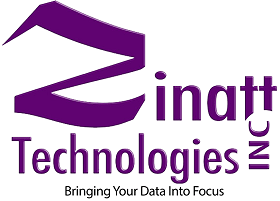The importance of data in political campaigns
Data plays a critical role in modern political campaigns, providing valuable insights and guiding strategic decision-making. By analyzing voter demographics, preferences, and behavior, campaigns can target their messaging and resources more effectively. Data-driven campaigns can identify swing voters, tailor personalized messages, and optimize campaign spending. Moreover, data analytics allows campaigns to track and measure the impact of their efforts, enabling them to make adjustments and refine their strategies in real-time. In an era where every vote counts, harnessing the power of data is essential for running successful political campaigns.

Collecting and analyzing voter data
Collecting and analyzing voter data is a critical component of running successful political campaigns. By gathering information on voter demographics, preferences, and behaviors, campaigns can better understand their target audience and tailor their messaging and strategies accordingly. This data-driven approach allows campaigns to identify key issues and concerns that resonate with voters, allowing for more effective communication and engagement. Additionally, analyzing voter data can help campaigns identify trends and patterns, enabling them to allocate resources and prioritize efforts in the most impactful way. In an era where data is king, harnessing the power of voter data can be the key to a winning campaign.
Understanding voter demographics and behavior
Understanding voter demographics and behavior is key to running a successful political campaign. By analyzing data on voter demographics, such as age, gender, and location, campaign strategists can tailor their messaging and target specific voter groups. Additionally, studying voter behavior can provide insights into what issues are most important to voters and how they are likely to respond to different campaign tactics. This data-driven approach allows campaigns to allocate resources effectively, engage with voters on a more personal level, and ultimately increase their chances of success on election day.
Targeting specific voter groups
Targeting specific voter groups is an essential strategy when it comes to running successful political campaigns. By using data, campaign teams can identify and understand the preferences, interests, and behaviors of different voter segments. This allows them to tailor their messages and campaign efforts to resonate with specific groups, increasing the chances of connecting with voters on a more personal level. Additionally, data-driven targeting enables campaigns to allocate their resources efficiently, focusing on the voter groups that are most likely to be swayed. With the right data and analysis, candidates can effectively engage with various demographics, ultimately leading to a more impactful and successful campaign.
Creating personalized campaign messages
Creating personalized campaign messages is a key strategy in driving successful political campaigns through data-driven approaches. By analyzing voter demographics, preferences, and behaviors, campaign teams can tailor their messages to resonate with specific target audiences. This personalized approach allows candidates to connect with voters on a deeper level, addressing their concerns and showcasing how their policies align with their needs. Data-driven insights also enable campaigns to identify key issues that are most important to different voter segments, allowing for more effective messaging and outreach. By leveraging data, political campaigns can maximize their impact and increase their chances of success in reaching and persuading voters.
Utilizing data for campaign strategy and decision-making
Utilizing data for campaign strategy and decision-making is a game-changer in the world of political campaigns. Gone are the days of relying solely on gut feelings and anecdotal evidence. By harnessing the power of data, campaign teams can gain valuable insights into voter behavior, preferences, and demographics. This information allows them to tailor their messaging, target specific voter groups, and allocate resources more effectively. Additionally, data analysis can help identify trends and patterns that may not be immediately apparent, enabling campaign strategists to make informed decisions and adjust their tactics accordingly. In today’s fast-paced and competitive political landscape, utilizing data is not just an advantage, but a necessity for running a successful campaign.
Implementing data-driven campaign tactics
Implementing data-driven campaign tactics is key to running a successful political campaign. In today’s digital age, having access to accurate and up-to-date data is essential for understanding voter preferences, targeting specific demographics, and making informed strategic decisions. By analyzing data from sources such as voter registration databases, polling data, and social media analytics, campaign teams can gain valuable insights into voter behavior and preferences. This allows them to tailor their messaging, allocate resources effectively, and engage with voters in a more personalized and impactful way. By harnessing the power of data, political campaigns can increase their chances of success and connect with voters on a deeper level.
Tracking and measuring campaign success
Tracking and measuring campaign success is essential for any political campaign. By using data-driven strategies, campaign managers can make informed decisions and optimize their efforts. Tracking metrics such as voter engagement, fundraising, and social media reach can provide valuable insights into the effectiveness of campaign messaging and tactics. Additionally, analyzing demographic data and voter behavior can help identify target audiences and tailor campaign strategies to maximize impact. With the ability to measure success in real-time, campaigns can adapt and pivot their approach to ensure they are reaching their goals and connecting with voters in the most effective way possible.
Challenges and limitations of using data in political campaigns
Using data to drive successful political campaigns is a powerful tool, but it also comes with its fair share of challenges and limitations. One of the main challenges is the sheer volume and complexity of the data. Political campaigns generate vast amounts of data from various sources, including voter registration databases, polling data, and social media analytics. Analyzing and interpreting this data accurately can be a daunting task. Additionally, privacy concerns and ethical considerations need to be taken into account when collecting and using data. It is crucial to strike a balance between leveraging data for campaign strategies while respecting individuals’ privacy rights. Despite these challenges, when used effectively, data can provide invaluable insights into voter behavior, preferences, and sentiment, enabling campaigns to make more informed decisions and tailor their messaging to resonate with their target audience.
The future of data-driven political campaigns
Data-driven political campaigns are the future of modern politics. With the advancement of technology, political campaigns have access to more data than ever before, allowing them to make informed decisions and target specific voter demographics. By analyzing data on voter behavior, preferences, and demographics, campaigns can tailor their messaging, outreach efforts, and advertising strategies to maximize their impact. This data-driven approach not only increases the efficiency and effectiveness of campaigns but also enables politicians to better understand and connect with their constituents. In a world where data is king, harnessing its power is essential for running successful political campaigns.




 520 838 0346
520 838 0346 sales@zinatt.com
sales@zinatt.com








